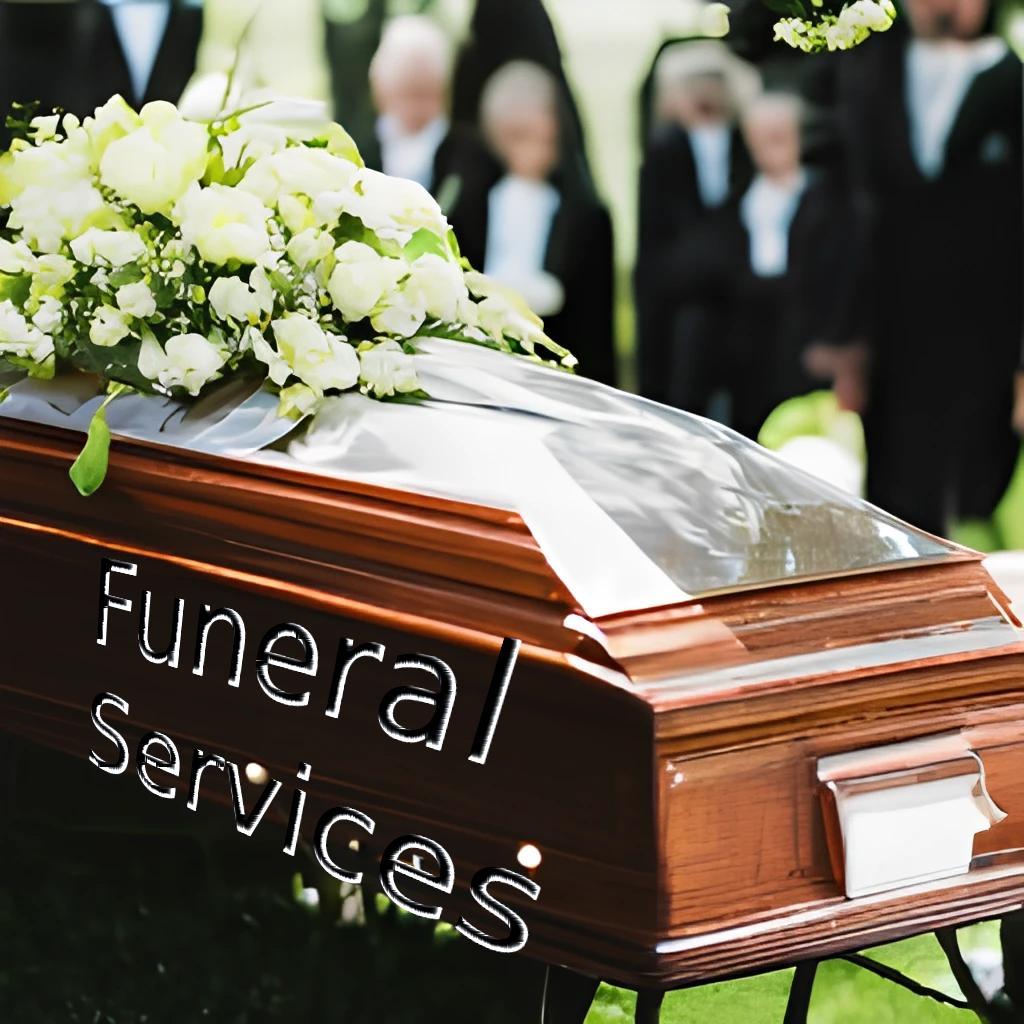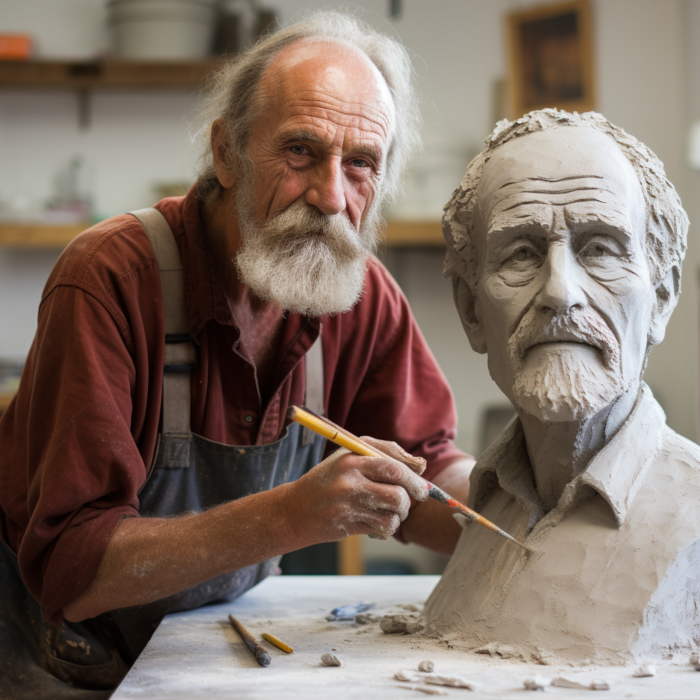


Funeral directors play a crucial role in helping families navigate one of life's most challenging moments—saying goodbye to a loved one. Their expertise extends beyond the logistics of funerals, encompassing compassion, support, and attention to detail. In this comprehensive guide, we will explore the world of funeral directors, shedding light on their services and providing useful tips for those facing the task of planning a funeral.
Understanding the Role of Funeral Directors.
Comprehensive Funeral Planning:
Tip: Funeral directors are adept at guiding families through the entire funeral planning process. From choosing the right funeral service to handling legal paperwork, they provide comprehensive support during difficult times.
Emotional Support:
Tip: Beyond logistics, funeral directors offer emotional support. They understand the grieving process and provide a compassionate presence, assisting families with empathy and care.
Customized Services:
Tip: Funeral directors work to create personalized services that reflect the life and preferences of the deceased. They collaborate with families to incorporate unique elements, ensuring a meaningful and individualized farewell.
Coordination with Service Providers:
Tip: Funeral directors liaise with various service providers, including cemeteries, crematories, florists, and clergy. Their coordination ensures a seamless and well-organized funeral service.
Legal Guidance:
Tip: Dealing with legal requirements is a significant aspect of funeral planning. Funeral directors guide families through the necessary paperwork, permits, and documentation, alleviating some of the administrative burdens.
Budgetary Considerations:
Tip: Funeral directors are skilled at working within different budget constraints. They offer transparent pricing, helping families make informed decisions that align with their financial capabilities.
Tips for Choosing a Funeral Director.
Reputation and Reviews:
Tip: Research funeral directors in your area, considering their reputation and client reviews. Personal recommendations from friends, family, or trusted acquaintances can provide valuable insights.
Funeral Home Facilities:
Tip: Visit funeral home facilities to assess the environment. Clean and well-maintained spaces contribute to a respectful and comfortable atmosphere for mourners.
Experience and Expertise:
Tip: Choose a funeral director with experience and expertise. An experienced professional is better equipped to handle various aspects of funeral planning and navigate potential challenges.
Compassion and Empathy:
Tip: Prioritize compassion and empathy when selecting a funeral director. A compassionate professional can provide emotional support, fostering a sense of trust and comfort during a difficult time.
Transparent Communication:
Tip: Communication is key. Opt for a funeral director who communicates transparently, explaining services, costs, and the funeral planning process. This helps avoid misunderstandings and ensures a collaborative approach.
Funeral Planning Tips.
Pre-Planning Services:
Tip: Consider pre-planning funeral services. Many funeral directors offer pre-need arrangements, allowing individuals to plan their funerals, easing the burden on their loved ones when the time comes.
Express Wishes Clearly:
Tip: If pre-planning is not an option, express your funeral wishes clearly to your loved ones. Discussing preferences, including burial or cremation, specific rituals, or desired music, can guide them in honoring your wishes.
Funeral Ceremony Options:
Tip: Explore different funeral ceremony options. Funeral directors can provide insights into traditional funerals, memorial services, graveside services, and other unique alternatives to create a meaningful farewell.
Memorialization Ideas:
Tip: Consider memorialization ideas beyond traditional services. Funeral directors can suggest various ways to honor the memory of the deceased, such as creating personalized keepsakes, memorial websites, or memorial gardens.
Incorporate Cultural Elements:
Tip: If the deceased had cultural or religious preferences, discuss these with the funeral director. Incorporating cultural elements can add significance and authenticity to the funeral service.
Coping with Grief.
Grief Counseling Resources:
Tip: Funeral directors often have resources and recommendations for grief counseling services. Taking advantage of these resources can provide valuable support for individuals and families navigating the grieving process.
Support Groups:
Tip: Explore local grief support groups. Funeral directors may be able to connect you with community resources or recommend support groups where individuals can share experiences and find solace in a supportive environment.
Self-Care and Understanding:
Tip: Encourage self-care and understanding during the grieving process. Funeral directors often provide materials on coping with grief, helping individuals recognize and navigate their emotions.
Funeral services are a way to honor and celebrate the life of a loved one who has passed away. Here are some of the common funeral services that are offered:
Funeral Planning: Funeral planning involves making arrangements for the funeral, including choosing a casket or urn, selecting a location, and deciding on any special touches that will make the service personal and meaningful.
Funeral Director Services: A funeral director is responsible for overseeing the funeral arrangements, coordinating with the family, and ensuring that everything runs smoothly during the service.
Embalming and Preparation: Embalming is the process of preparing the deceased's body for viewing and burial. This may include washing, dressing, and applying makeup or other cosmetic treatments.
Visitation: Visitation or wake is an opportunity for friends and family to pay their respects to the deceased and offer condolences to the family.
Funeral Service: The funeral service is the main event, where friends and family gather to honor the life of the deceased. This may include a religious or secular service, readings, music, and eulogies.
Cremation Services: Cremation services are an alternative to traditional burial. This involves cremating the body and storing the ashes in an urn.
Graveside Services: Graveside services are held at the burial site and may include a brief service or ceremony.
Memorial Services: A memorial service is a gathering to remember and celebrate the life of the deceased. This may be held at any time after the death and may include photos, videos, and other memorabilia.
Funeral services are an important part of the grieving process and can provide closure and comfort to the family and friends of the deceased. Funeral homes and directors can provide guidance and support during this difficult time.
The funeral process is a sensitive and emotional time for families and loved ones who are grieving the loss of someone special. To ensure that the funeral process runs smoothly and respectfully, there are a few things to avoid:
Making inappropriate comments: It is important to avoid making any inappropriate comments or jokes during the funeral process. This can be disrespectful to the family and friends of the deceased.
Being disruptive: The funeral service is a time to honor and celebrate the life of the deceased, and disruptions can be disrespectful and distracting. Turn off your phone and avoid talking or making noise during the service.
Dressing inappropriately: It is important to dress appropriately for the funeral service. Avoid wearing anything that is too casual or revealing, and make sure that your clothing is clean and well-maintained.
Taking photographs or videos: Taking photographs or videos during the funeral service is not appropriate. It can be intrusive and disrespectful to the family and friends of the deceased.
Bringing uninvited guests: If you are attending a funeral service, it is important to only bring invited guests. Bringing uninvited guests can be disruptive and disrespectful to the family and friends of the deceased.
Expressing negative opinions: If you did not have a positive relationship with the deceased, it is important to keep your negative opinions to yourself during the funeral process. This is a time to honor and celebrate the life of the deceased, not to focus on negative feelings or opinions.
By avoiding these common pitfalls, you can ensure that the funeral process is respectful and meaningful for everyone involved.
When choosing a funeral director, it is important to consider several factors to find the best one for you and your family. Here are some tips to help you find the best funeral director:
Research and ask for recommendations: Research funeral homes in your area and ask friends and family for recommendations. You can also check online reviews and ratings.
Check licensing and accreditation: Make sure the funeral home is licensed and accredited by the relevant governing body.
Look for transparency and honesty: A good funeral director should be transparent and honest about their services and pricing. They should provide clear and detailed pricing information upfront.
Consider their experience: Look for a funeral director with experience in the type of funeral service you require. For example, if you want a traditional religious funeral, look for a director with experience in this area.
Meet with the funeral director in person: Schedule a meeting with the funeral director to discuss your needs and concerns. This is an opportunity to ask questions and get a sense of their professionalism and compassion.
Consider their services: Consider the funeral director's services and offerings, including funeral planning, embalming and preparation, visitation, funeral service, cremation, graveside service, and memorial service.
Look for empathy and compassion: A good funeral director should be empathetic and compassionate during this difficult time. They should be patient and supportive, listening to your needs and concerns.
Funeral directors play an indispensable role in providing comfort, guidance, and logistical support during a challenging time. By understanding their role, choosing a compassionate and experienced professional, and actively participating in the funeral planning process, individuals can create meaningful farewells that honor the lives of their loved ones. A collaborative approach, coupled with the expertise of a dedicated funeral director, ensures a respectful and personalized farewell, leaving a lasting tribute to those who have left an indelible mark on our lives.

We use cookies
We use cookies and other tracking technologies to improve your browsing experience on our website, to show you personalized content and targeted ads, to analyze our website traffic, and to understand where our visitors are coming from. Privacy Policy.